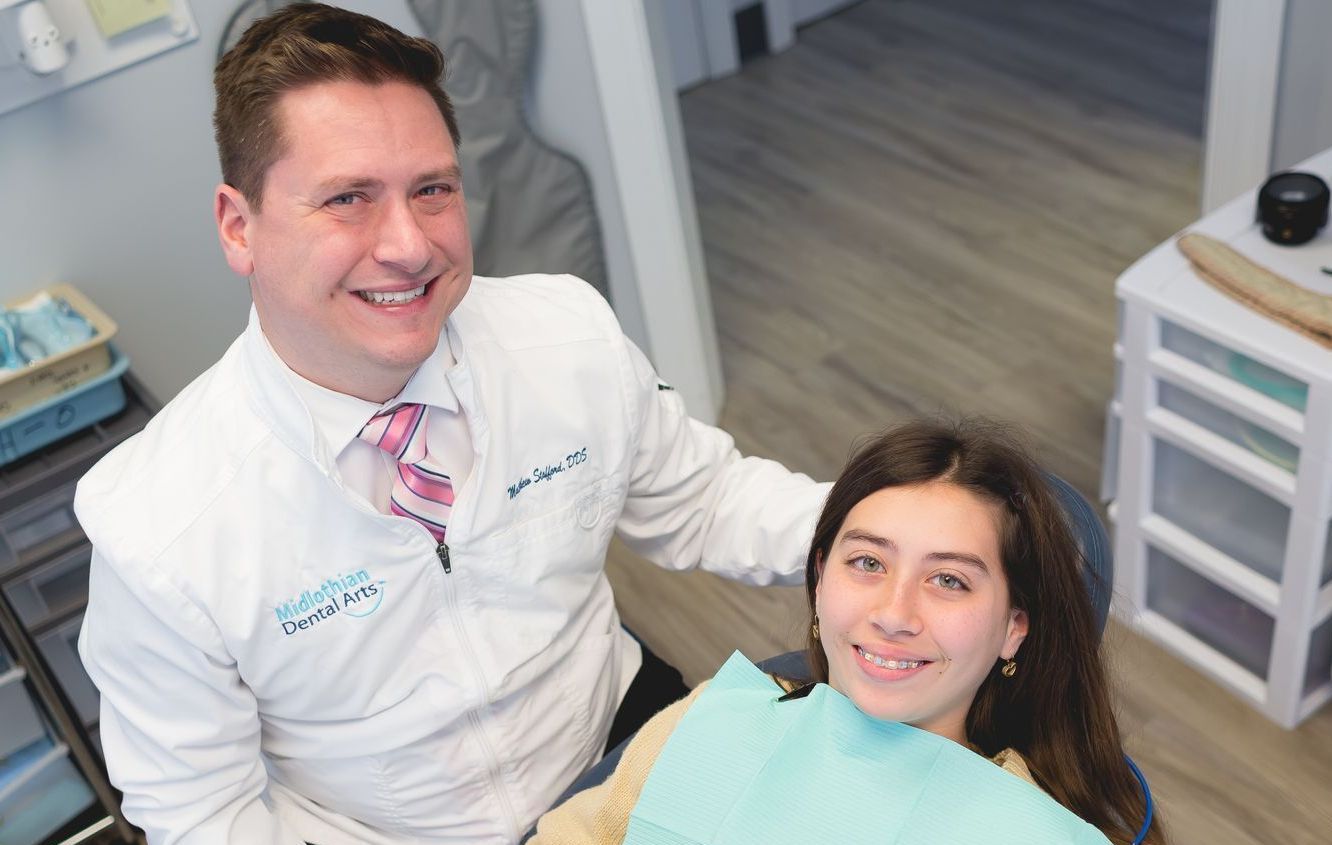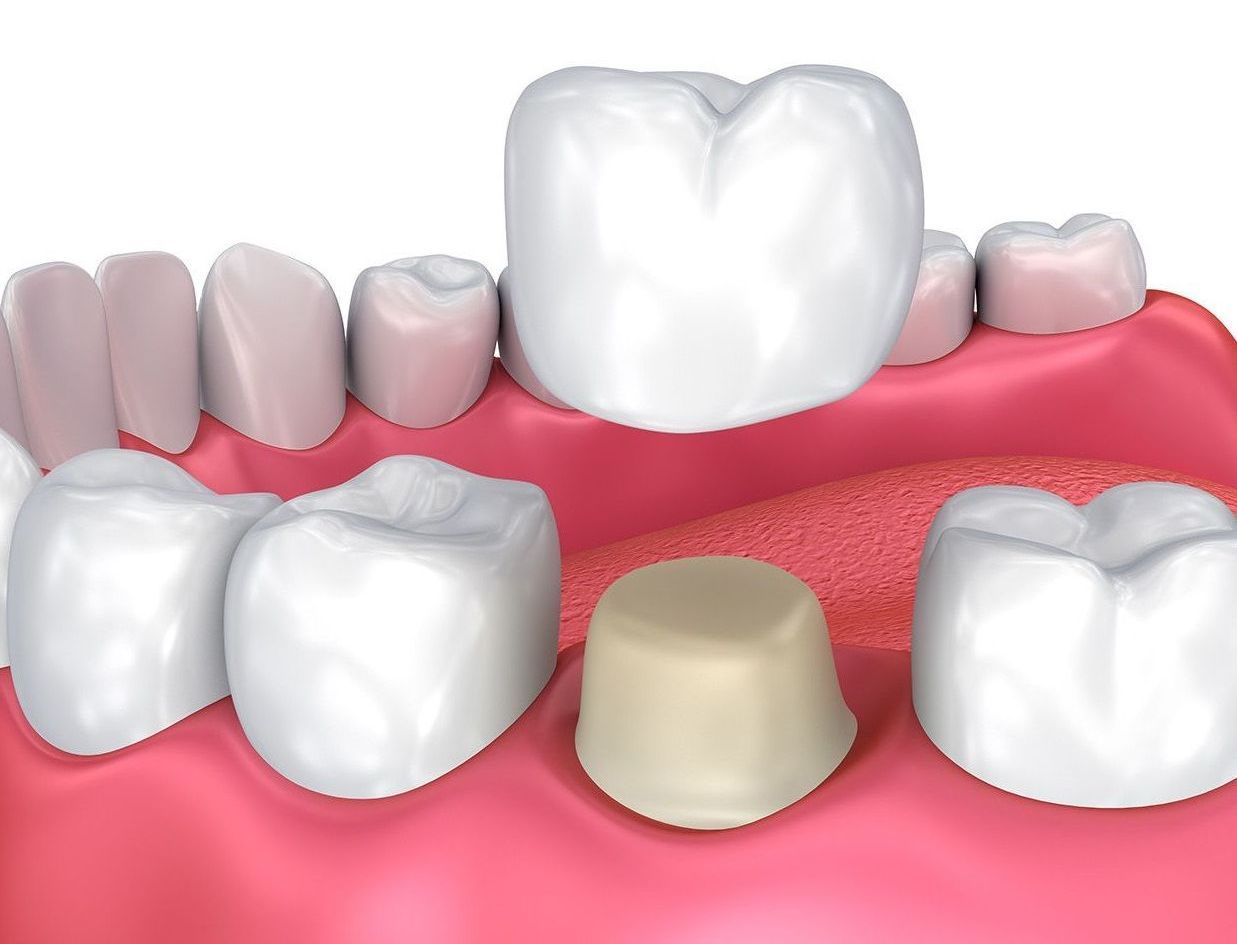Dental Implants - Midlothian
We understand that the world of dental implants can be overwhelming, uncertain, and a bit scary. Hopefully, we can ease those glaring concerns and answer your questions before starting the process of receiving dental implants. Let’s start with the basics.
What are Dental Implants?
Dental implants are a modern, long-lasting solution for replacing missing teeth. They consist of a small post—usually made of titanium or zirconia—that is surgically placed into the jawbone, acting as an artificial tooth root. Once the implant has healed and fused with the bone, a custom-made crown, bridge, or denture is attached to restore the look and function of your natural tooth. Implants are strong, stable, and look incredibly natural, allowing you to eat, speak, and smile with confidence. At Midlothian Dental Arts, Dr. Stafford offers personalized dental implant solutions to help you reclaim a healthy, beautiful smile.
Why do people get dental implants?
Most people choose implants because they offer a long-term solution with an excellent prognosis for a missing tooth or missing teeth. They feel very natural within your mouth and the functionality if excellent.
How will a dental implant benefit my health?
A dental implant will help a person maintain healthy jaw bone, as well as help a person to choose healthy food choices rather than eating soft foods that people eat when they do not have teeth to chew with. They also help an individual maintain positive self-esteem, as they do not need to worry about embarrassing moments caused by missing or loose teeth.
What are the disadvantages of dental implants?
The greatest disadvantage is the cost. Other than the cost, there are no disadvantages compared with edentulism (having lost teeth). Compared with natural teeth, there is the loss of sense of pressure, also called proprioception.
How much do implants cost?
The cost of dental implants can vary depending on the number of teeth being replaced, the complexity of the case, and whether additional procedures—like bone grafting or extractions—are needed. While implants may have a higher upfront cost compared to other tooth replacement options, they are designed to last for decades, making them a long-term investment in your oral health and quality of life. At Midlothian Dental Arts, we believe in transparency and will walk you through all of your options, costs, and available financing solutions so you can make a confident decision that fits your needs and budget.
What if I want metal-free implants?
If you’re interested in a more natural or holistic approach to tooth replacement, metal-free dental implants may be an excellent option. These implants are typically made from zirconia, a strong, ceramic-based material that is biocompatible, corrosion-resistant, and completely free of metal. Many patients choose zirconia implants for their aesthetic appeal (they're white like natural teeth) and for peace of mind if they have metal sensitivities. At Midlothian Dental Arts, Dr. Stafford is happy to discuss whether metal-free implants are right for you and help you explore the best materials for your long-term oral health and personal preferences.
What does “all on 4” mean?
The phrase "all on 4" refers to a procedure that allows, with the placement of 4 snap-in implants, a person's mouth to be restored with a full arch of teeth.
This procedure allows a person to walk out of surgery with a temporary denture and, after healing, have a permanent denture 6 months later. This procedure is much more affordable than having four implants. So, it is a denture that snaps into implants.
How do dental implants help if I have dentures or partial dentures?
Dental implants are used for dentures to snap onto, like "all on 4". With a partial denture, the denture can be supported by implants, rather than your teeth, which helps preserve the health of the remaining teeth.
Does the body ever reject implants?
The answer is yes. The reasons typically include poor oral hygiene, smoking, poor bone quality, bruxism (teeth grinding), and poor surgical technique that allows the bone to become overheated during implant placement.
Are dental implants noticeable?
If an implant is placed and restored properly, they look just like natural teeth - offering a beautiful, natural smile.
How long do implants last?
Dental implants are designed to be a long-term solution—and with proper care, they can last 20 years or more, often a lifetime. The implant itself, which is placed into the jawbone, is made of durable materials like titanium or zirconia and becomes permanently fused with the bone over time. The crown or restoration attached to the implant may need to be replaced eventually due to normal wear, but the implant post can remain strong and stable for decades. Daily brushing and flossing, along with regular dental visits, are key to keeping your implant healthy and functioning beautifully for years to come. Their success rate is upwards of 96%. Failure is usually related to poor oral hygiene, bruxism, or other health issues.
Each dental implant case is unique to the patient. While these are the answers to many frequently asked questions on the matter, Dr. Stafford and his team at Midlothian Dental Arts always encourage a consultation so that our team can correctly diagnose and treat your specific situation. If dental implants are something you have thought about, give us a call today!










